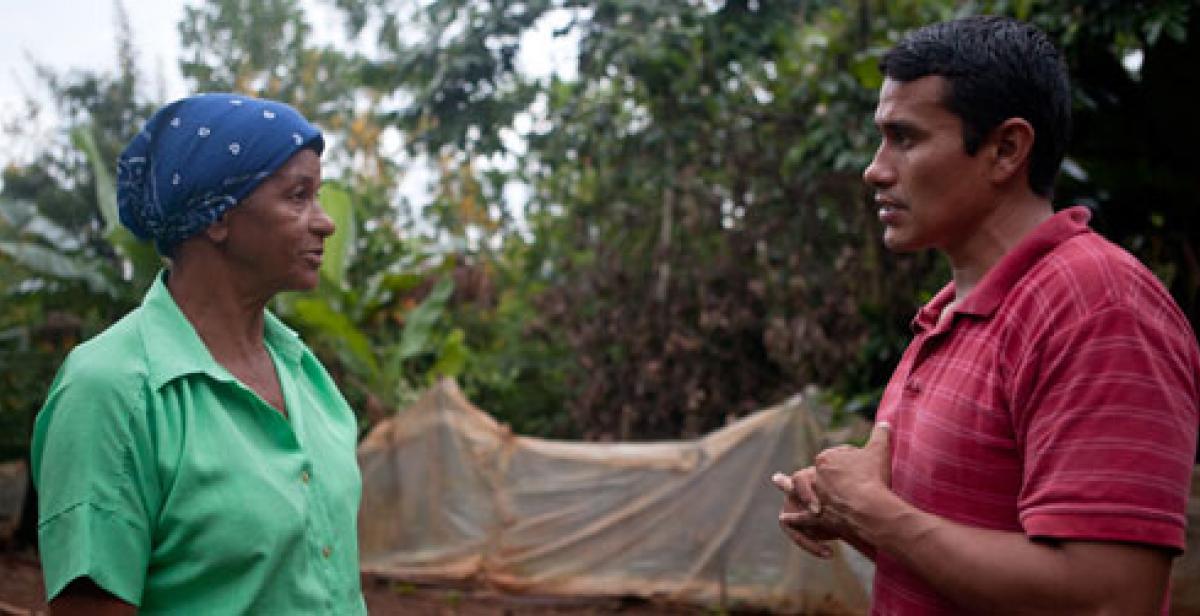Progressio development worker Bernardo updates you on what he's been up to this week:
Buying tools and seeds
"Firstly we had to purchase the materials people need in the villages covered by the Green Libon project [in the river Libon area]: start-up kit (tools and seeds) for small family gardens, plastic sheets to cover the nurseries and orchards (home-made 'greenhouses'), and assets for the worm beds.
"Friday, we started to set up worm beds in Cruz de Cabrera: these are used to create organic compost.
Getting started
"We also delivered the kits for the gardens to beneficiary families who we had earlier trained in agro-ecological farming methods, including small family orchards.
"These families have waited a while and are excited to start producing, as we are at the season of planting right now.
Saving seedlings from drought
"However, droughts have been affecting the area in the past few weeks. That's why we had to do some follow-up visits to the nurseries managed by the grassroots farmers' groups we are supporting.
"Because of the drought, the seedlings had dried up before they were ready for replanting as part of our reforestation activities. So we went to Restauración in order to help save as many of the seedlings as we could, and to plant new ones in the nurseries.
Helping more people
"In the next two weeks we hope to start with the coffee cultivation activities and help more families to set up small gardens.
"We are achieving good results, so the team of GIZ [which is co-funding the Green Libon project] is highly committed to continuing to support the work of our partner organisation Solidarite Fwontalye in the communities of Restauración.
More support needed
"However, they are focused on the Libon River basin - and there are many more communities and families who urgently need support to guarantee food security and resilient livelihoods."
Photo: Amparo Jimenéz with DW Bernardo in her food garden in El Carrizal, Dominican Republic (photo © Fran Afonso/Progressio)
 Read more stories from our food security project
Read more stories from our food security project
Return to Food for a better future home page



